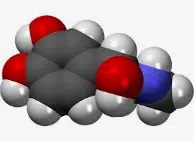The first thing we are going to do before entering fully into the meaning of the term neurotransmitter is to know its etymological origin. Specifically, we have to establish that it is the result of the union of two lexical components from different languages:
-The Greek noun “neuro”, which can be translated as “nerve”.
-The Latin word “transmissor”, which is equivalent to “he who sends from one place to another”.
A neurotransmitter is an element capable of transmitting impulses within the nervous synapse . In other words: neurotransmitters enable the connection that the axon of one neuron establishes with the dendrite of another neuron, generating the synapse.
 Also called neuromediators , neurotransmitters are biomolecules found inside neurons. These substances are secreted by synaptic vesicles , which are located in the plasma membrane at the tip of the axons.
Also called neuromediators , neurotransmitters are biomolecules found inside neurons. These substances are secreted by synaptic vesicles , which are located in the plasma membrane at the tip of the axons.
Synaptic vesicles, therefore, store neurotransmitters that were synthesized in the neuronal soma or in nerve endings. Through exocytosis , these neurotransmitters are released when the nerve impulse arrives, triggering the response. Once their function has been fulfilled, the neurotransmitters become inactive again through their reabsorption into the membranes or through chemical degradation.
It is important to keep in mind that the release of the neurotransmitter occurs when the nerve impulse reaches the end of the axons . The presynaptic neuron is the one that is responsible for the release of the neurotransmitter, while the postsynaptic neuron receives the signal. These postsynaptic neurons are inhibited or stimulated, depending on the case.
Serotonin , norepinephrine , dopamine , glutamate , and glycine are some of the most important neurotransmitters. Because, in the absence of neurotransmitters, the chemical connection established between neurons is not possible, disorders with these substances cause various disorders.
The excess or insufficiency of a neurotransmitter, in this framework, can generate different problems in the body. With drugs , for example, it is possible to stimulate production if necessary.
The aforementioned serotonin is essential in functions such as controlling body temperature, increasing or reducing sexual appetite and even regulating anxiety. On the other hand, norepinephrine works as a stress hormone and dopamine is what allows the coordination of body movement.
Glutamate, in its case, performs functions as important as regulating emotions and controlling memory. Glycine, for its part, is an amino acid that is key in the regulation of motor movements.
In addition to those mentioned, other important neurotransmitters are the following:
-Adrenaline, which plays a fundamental role when we are in stressful situations. Thus, in these cases it accelerates the heart rate or dilates the pupils, for example.
-GABA (Gamma Aminobutyric Acid) has calming functions. Hence, alterations in this neurotransmitter can lead to problems such as insomnia, depression and even anxiety.
-Histamine, for its part, plays a key role in the regulation of sleep and even in the management of anxiety levels, for example.
